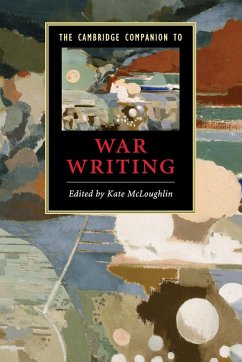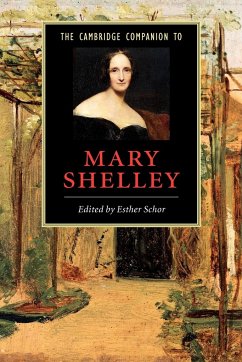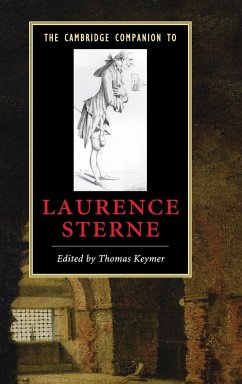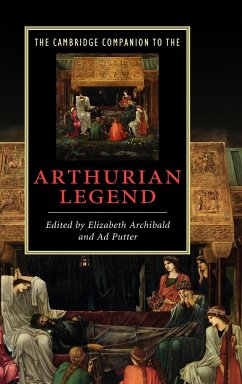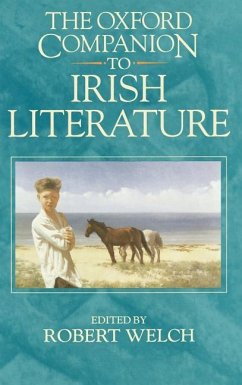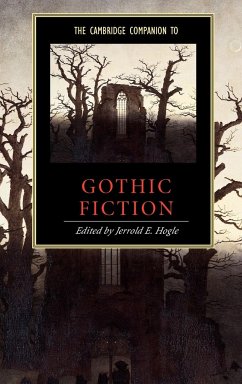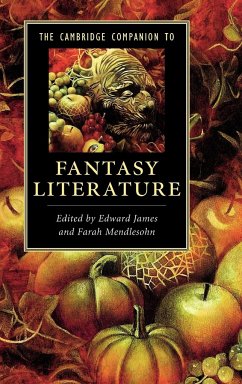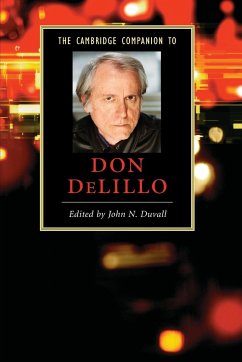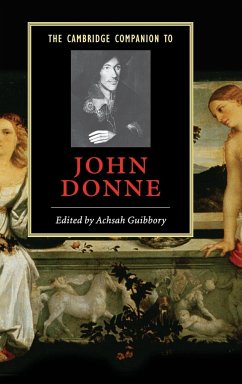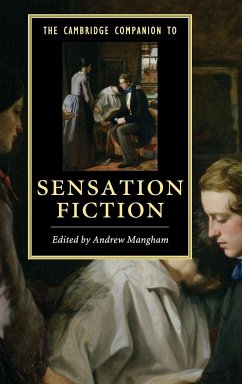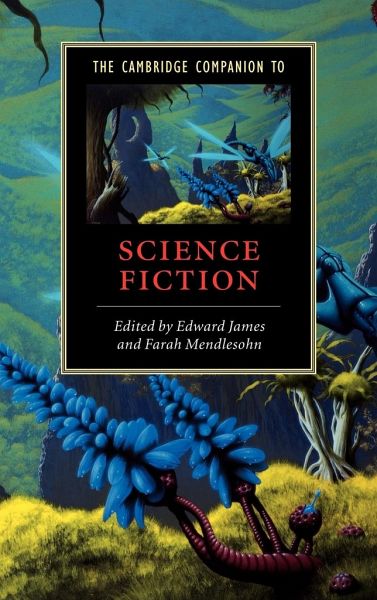
The Cambridge Companion to Science Fiction
Versandkostenfrei!
Versandfertig in 1-2 Wochen
132,99 €
inkl. MwSt.
Weitere Ausgaben:

PAYBACK Punkte
66 °P sammeln!
This volume brings together essays by scholars and practitioners of science fiction.Science fiction is at the intersection of numerous fields. It is a literature which draws on popular culture, and which engages in speculation about science, history, and all types of social relations. This volume brings together essays by scholars and practitioners of science fiction, which look at the genre from these different angles. After an introduction to the nature of science fiction, historical chapters trace science fiction from Thomas More to more recent years, including a chapter on film and televis...
This volume brings together essays by scholars and practitioners of science fiction.
Science fiction is at the intersection of numerous fields. It is a literature which draws on popular culture, and which engages in speculation about science, history, and all types of social relations. This volume brings together essays by scholars and practitioners of science fiction, which look at the genre from these different angles. After an introduction to the nature of science fiction, historical chapters trace science fiction from Thomas More to more recent years, including a chapter on film and television. The second section introduces four important critical approaches to science fiction drawing their theoretical inspiration from Marxism, postmodernism, feminism and queer theory. The final and largest section of the book looks at various themes and sub-genres of science fiction. A number of well-known science fiction writers contribute to this volume, including Gwyneth Jones, Ken MacLeod, Brian Stableford Andy Duncan, James Gunn, Joan Slonczewski, and Damien Broderick.
Table of content:
List of contributors; Foreword; Acknowledgements; Chronology; Introduction: reading science fiction Farah Mendlesohn; Part I. The History: 1. Science fiction before the genre Brian Stableford; 2. The magazine era: 1926-1960 Brian Attebery; 3. New wave and backwash: 1960-1980 Damien Broderick; 4. Science fiction from 1980 to the present John Clute; 5. Film and television Mark Bould; 6. Science fiction and its editors Gary K. Wolfe; Part II. Critical Approaches: 7. Marxist theory and science fiction Istvan Csicsery-Ronay, Jr; 8. Feminist theory and science fiction Veronica Hollinger; 9. Postmodernism and science fiction Andrew M. Butler; 10. Science fiction and queer theory Wendy Pearson; Part III. Sub-Genres and Themes: 11. The icons of science fiction Gwyneth Jones; 12. Science fiction and the life sciences Joan Slonczewski and Michael Levy; 13. Hard science fiction Kathryn Cramer; 14. Space opera Gary Westfahl; 15. Alternate history Andy Duncan; 16. Utopias and anti-utopias Edward James; 17. Politics and science fiction Ken MacLeod; 18. Gender in science fiction Helen Merrick; 19. Race and ethnicity in science fiction Elisabeth Anne Leonard; 20. Religion and science fiction Farah Mendlesohn; Further reading; Index.
Science fiction is at the intersection of numerous fields. It is a literature which draws on popular culture, and which engages in speculation about science, history, and all types of social relations. This volume brings together essays by scholars and practitioners of science fiction, which look at the genre from these different angles. After an introduction to the nature of science fiction, historical chapters trace science fiction from Thomas More to more recent years, including a chapter on film and television. The second section introduces four important critical approaches to science fiction drawing their theoretical inspiration from Marxism, postmodernism, feminism and queer theory. The final and largest section of the book looks at various themes and sub-genres of science fiction. A number of well-known science fiction writers contribute to this volume, including Gwyneth Jones, Ken MacLeod, Brian Stableford Andy Duncan, James Gunn, Joan Slonczewski, and Damien Broderick.
Table of content:
List of contributors; Foreword; Acknowledgements; Chronology; Introduction: reading science fiction Farah Mendlesohn; Part I. The History: 1. Science fiction before the genre Brian Stableford; 2. The magazine era: 1926-1960 Brian Attebery; 3. New wave and backwash: 1960-1980 Damien Broderick; 4. Science fiction from 1980 to the present John Clute; 5. Film and television Mark Bould; 6. Science fiction and its editors Gary K. Wolfe; Part II. Critical Approaches: 7. Marxist theory and science fiction Istvan Csicsery-Ronay, Jr; 8. Feminist theory and science fiction Veronica Hollinger; 9. Postmodernism and science fiction Andrew M. Butler; 10. Science fiction and queer theory Wendy Pearson; Part III. Sub-Genres and Themes: 11. The icons of science fiction Gwyneth Jones; 12. Science fiction and the life sciences Joan Slonczewski and Michael Levy; 13. Hard science fiction Kathryn Cramer; 14. Space opera Gary Westfahl; 15. Alternate history Andy Duncan; 16. Utopias and anti-utopias Edward James; 17. Politics and science fiction Ken MacLeod; 18. Gender in science fiction Helen Merrick; 19. Race and ethnicity in science fiction Elisabeth Anne Leonard; 20. Religion and science fiction Farah Mendlesohn; Further reading; Index.





